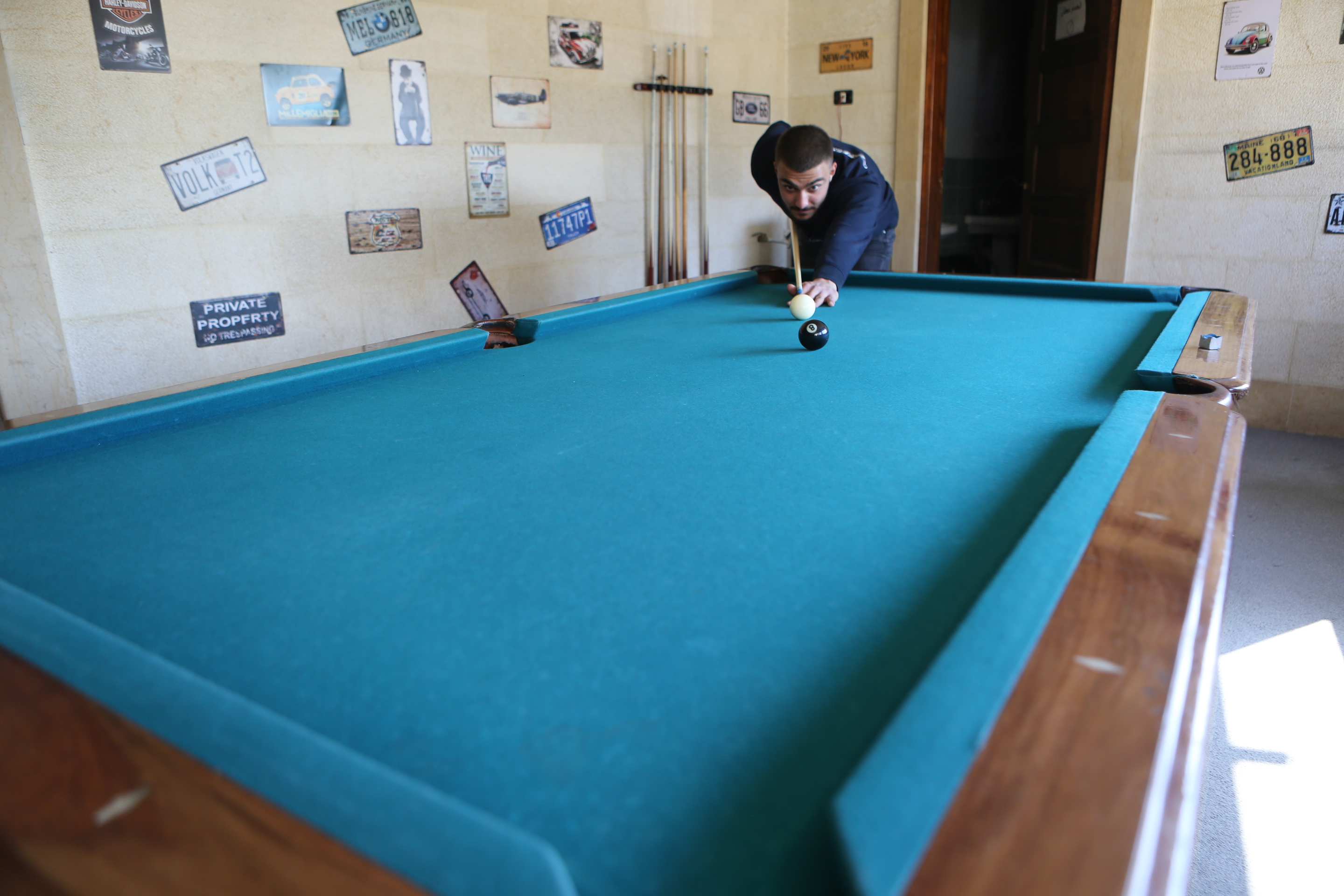A day in the life of Hamza
Hamza is a 20-year-old man from Baalback, Lebanon. He is a creative and energetic person, in constant search of an opportunity that can provide for him in the future. He dreams to be a successful chef one day, cooking different cuisines while running his own restaurant.
In 2019, he stopped going to vocational school due the pandemic and the severe economic crisis that hit Lebanon.
He had to start working to produce income for the family. He is the eldest child in a family of 6, once he turned 18, he felt a great responsibility to become the family’s provider, especially after his father became too ill to work.
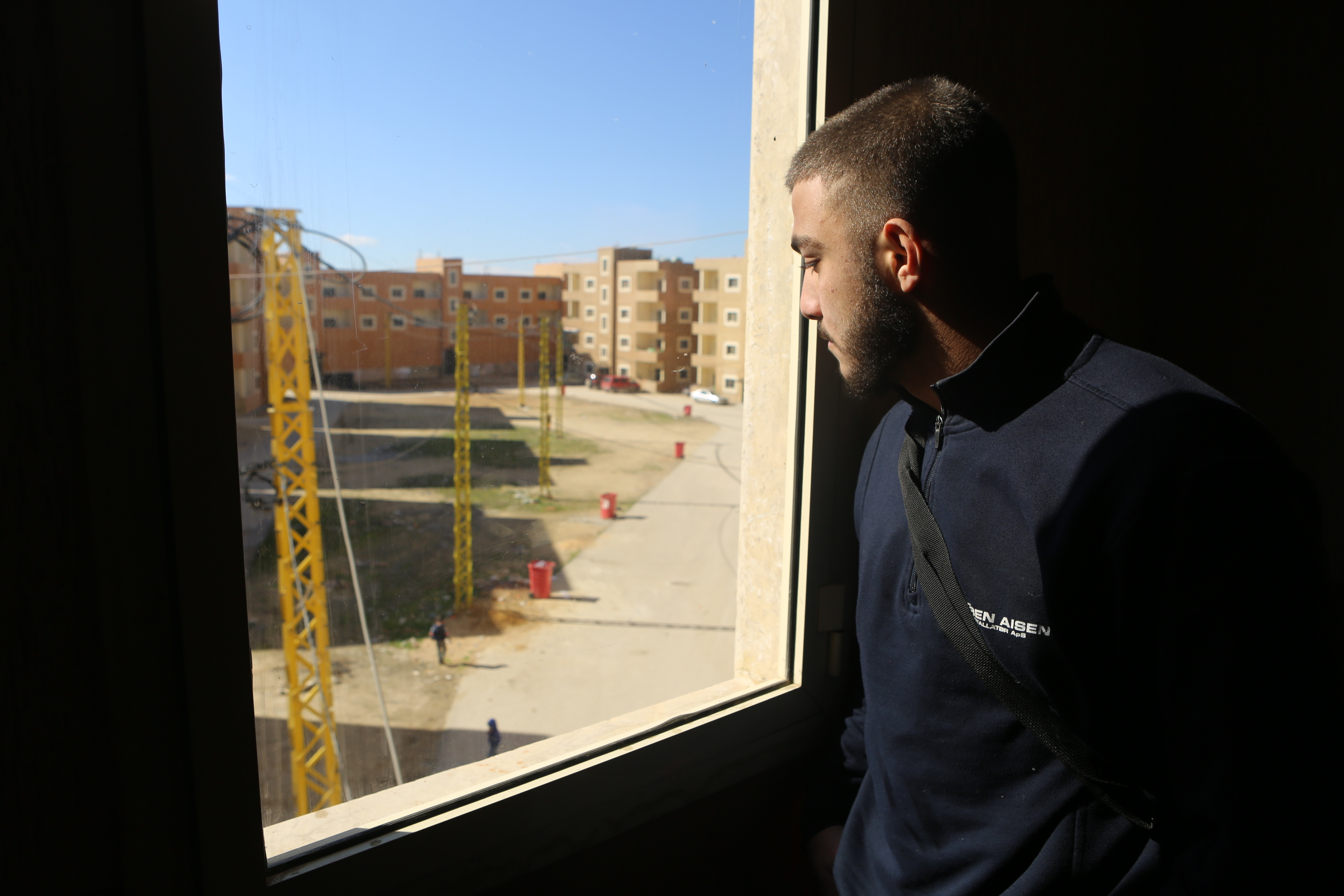
Hamza wakes up every day at 7 am to go to work. The first thing he does is check on the latest news and trends on social media.
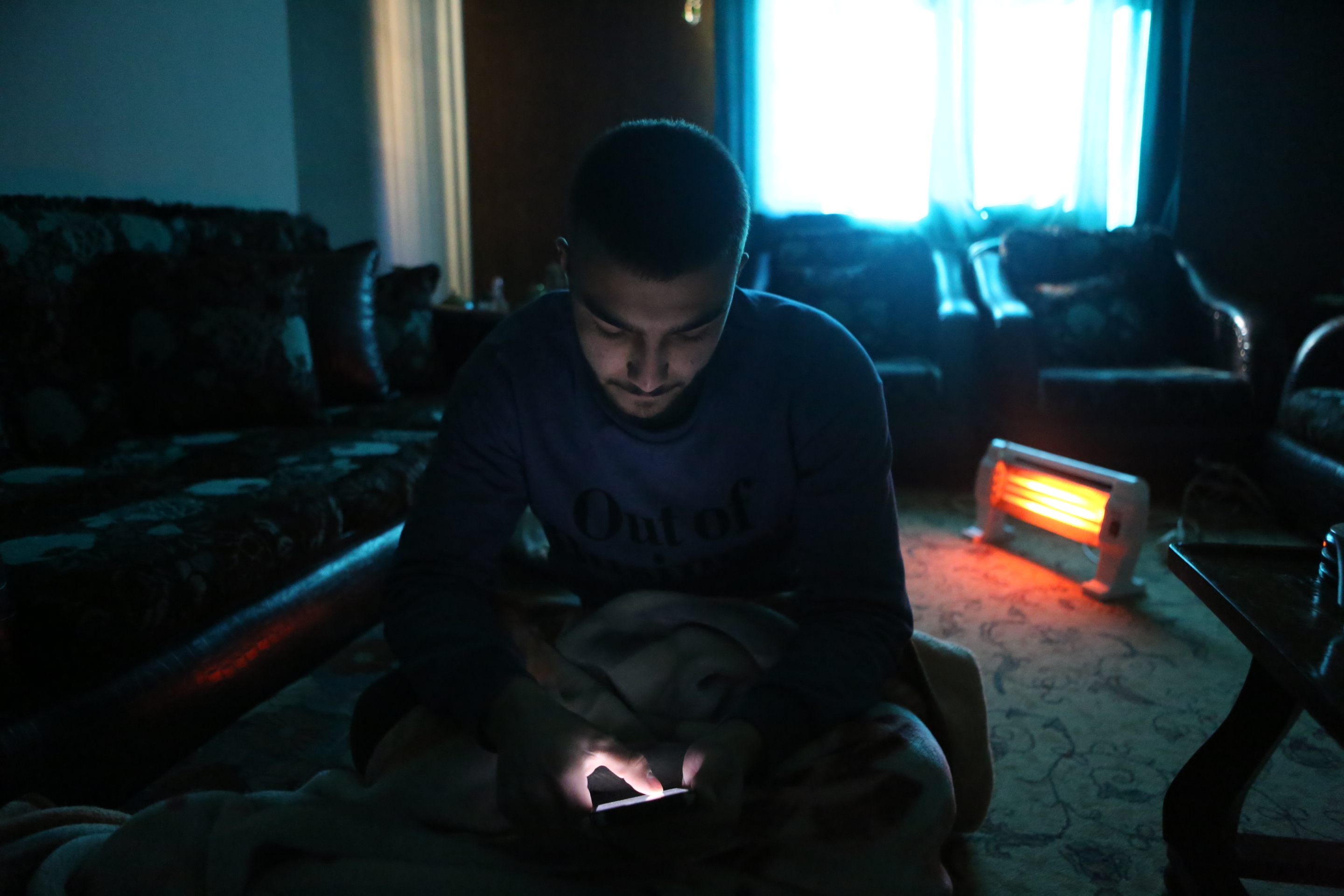
Before heading to work, Hamza drinks a cup of coffee and smokes a cigarette with his father. They talk about the economic situation in Lebanon, and the future of Hamza after he quit vocational school. His dad is always urging him to complete his studies, but the family’s finance cannot afford it. Hamza also thinks finishing school is crucial, since it looks good on the resume’ if he decides to work outside Lebanon.
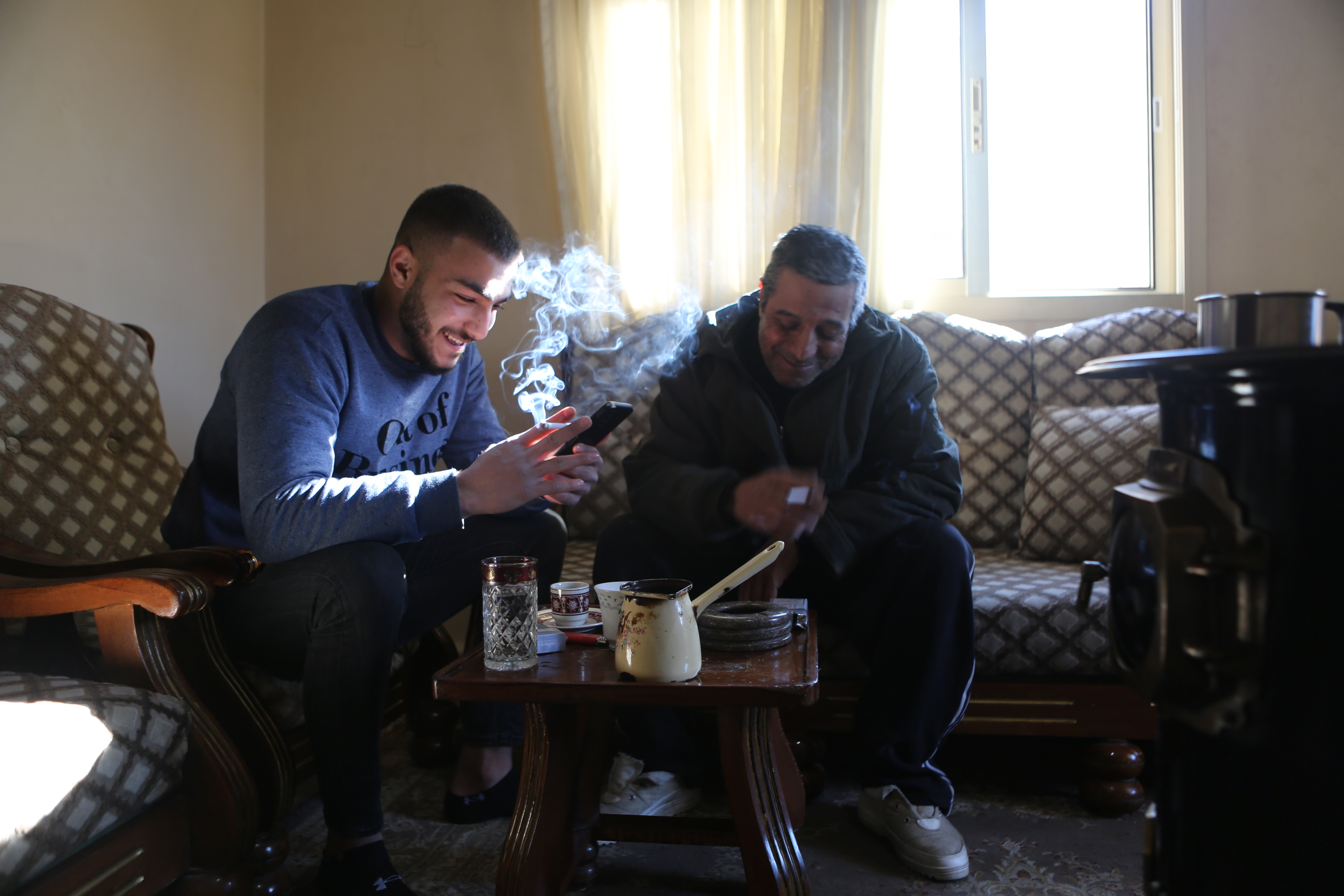
Hamza says he plans to go back to school once the fuel crisis ends, he adds: “I would be able to commute to the school without paying an insane amount of money”. Hamza’s school is located a 2-3-hour drive from his hometown Baalback, he goes there because there are no adequate vocational schools in the city. “There’s a school right next to my house, but it is not educationally adequate, teachers almost never come to class, and it is unsafe, a lot of fights break out, where people use knives and shoot at each other with guns”, Hamza adds.
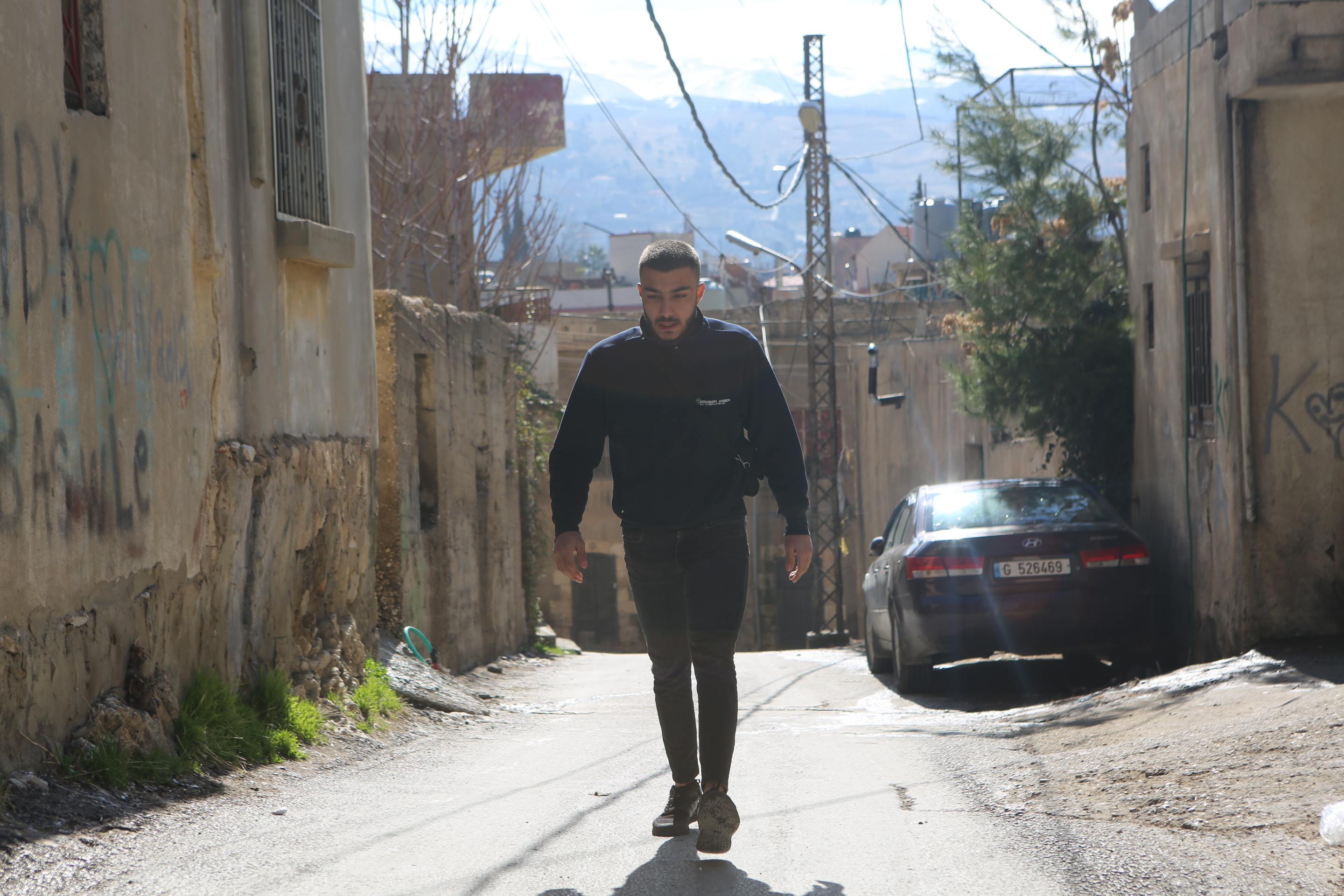
Hamza walks his way to work every day, passing through the old authentic streets of Baalback. It takes him around 30 minutes to reach the location. “It is sometimes a hassle to walk all the way there by myself” says Hamza, “The streets are always empty in the morning, and there’s always a possibility you can get robbed” he adds.
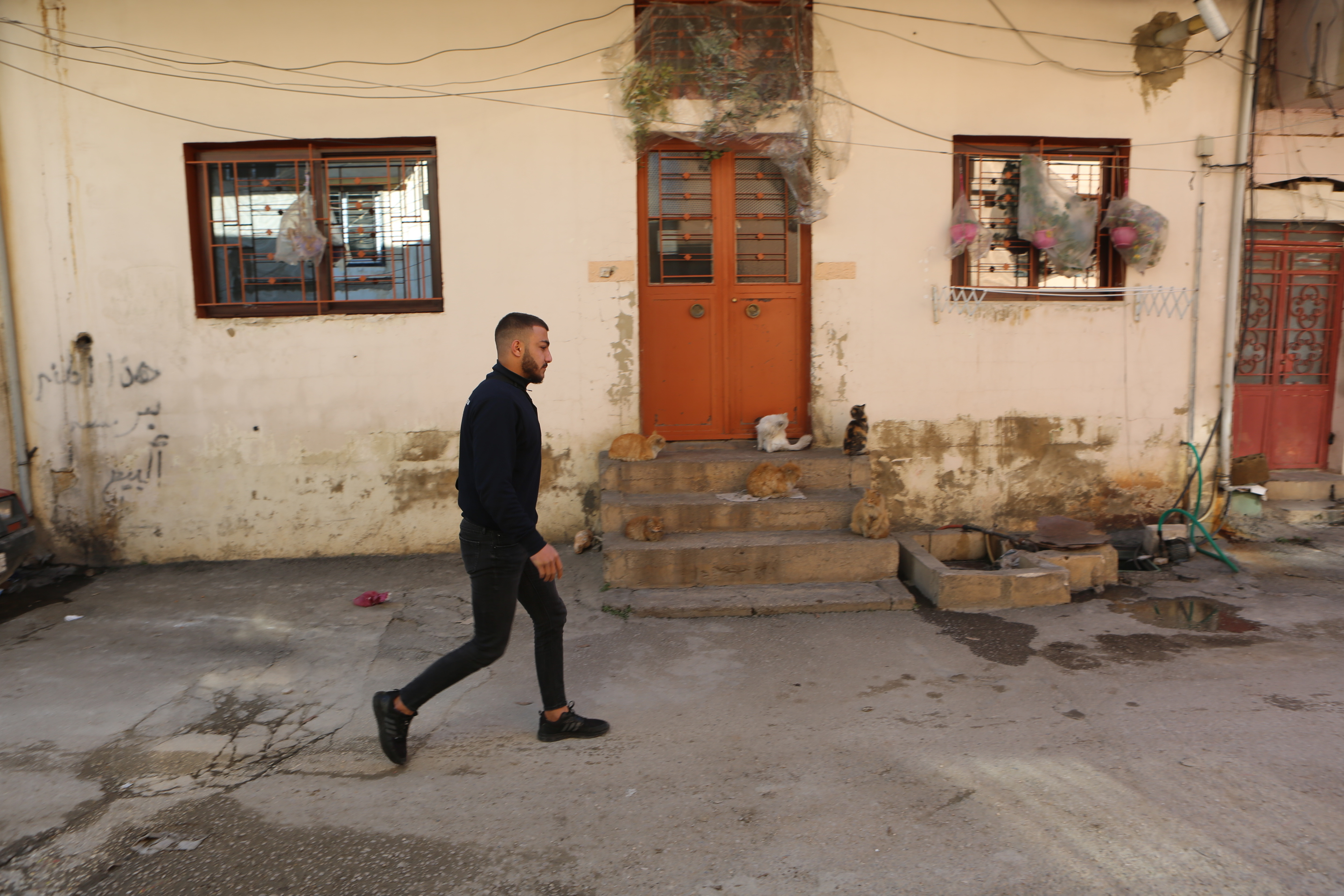
Before reaching the shop, Hamza passes by a local bakery, where he checks up on his younger brother who is employed there. He gets a freshly baked load of bread, and rolls a sandwich for breakfast.
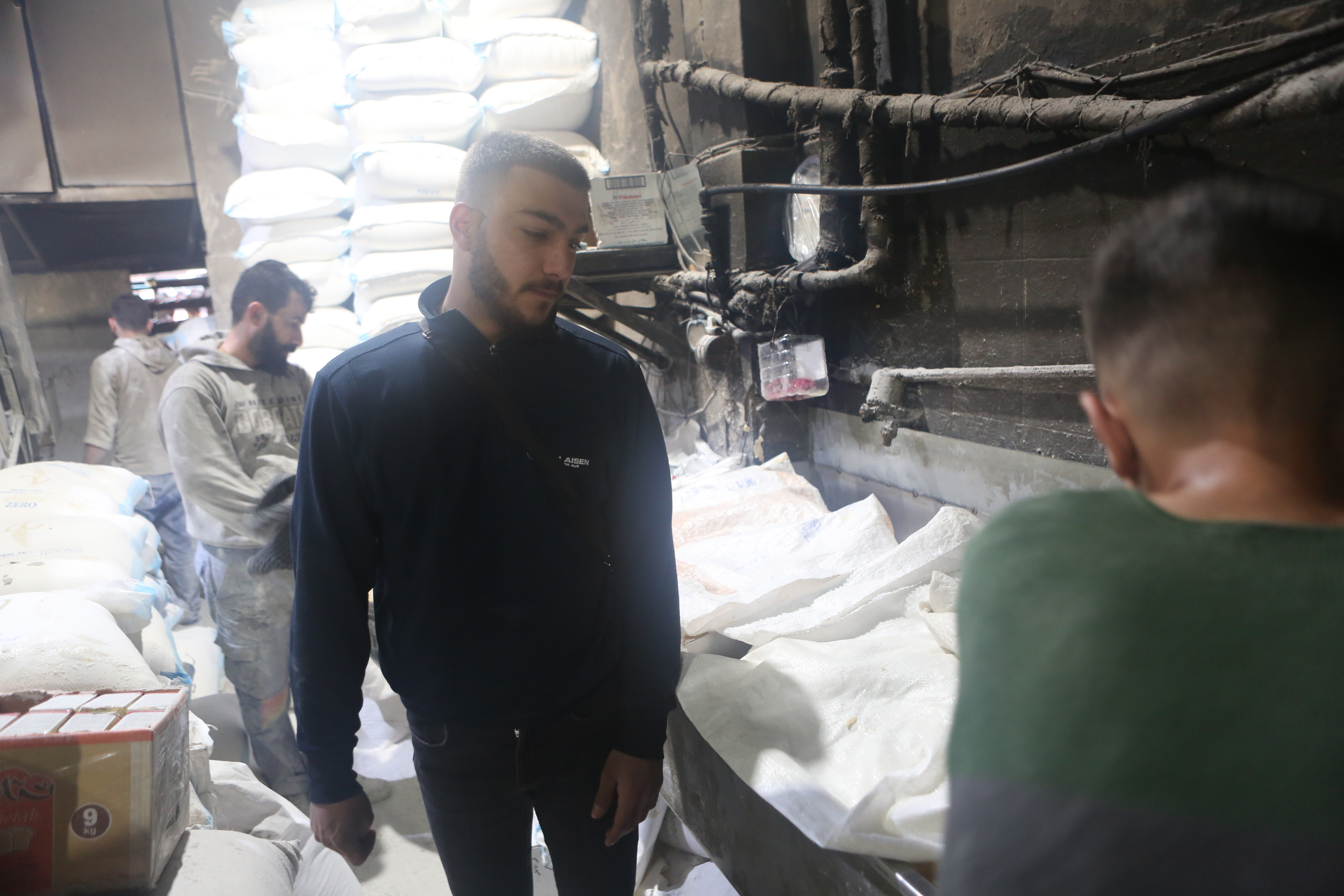
Once he stopped going to school Hamza tried out all kind of work around Baalback in attempt a to find his way into becoming a working and productive man.
He tried working in a couple of restaurants, but didn’t like the experience, Hamza
says: “they paid very little, and the employer was always eager to replace me by foreign workers who got paid even less”. He then tried working in hard labor like house construction and aluminum installation, then a bakery, and currently working at his friend’s candy shop.
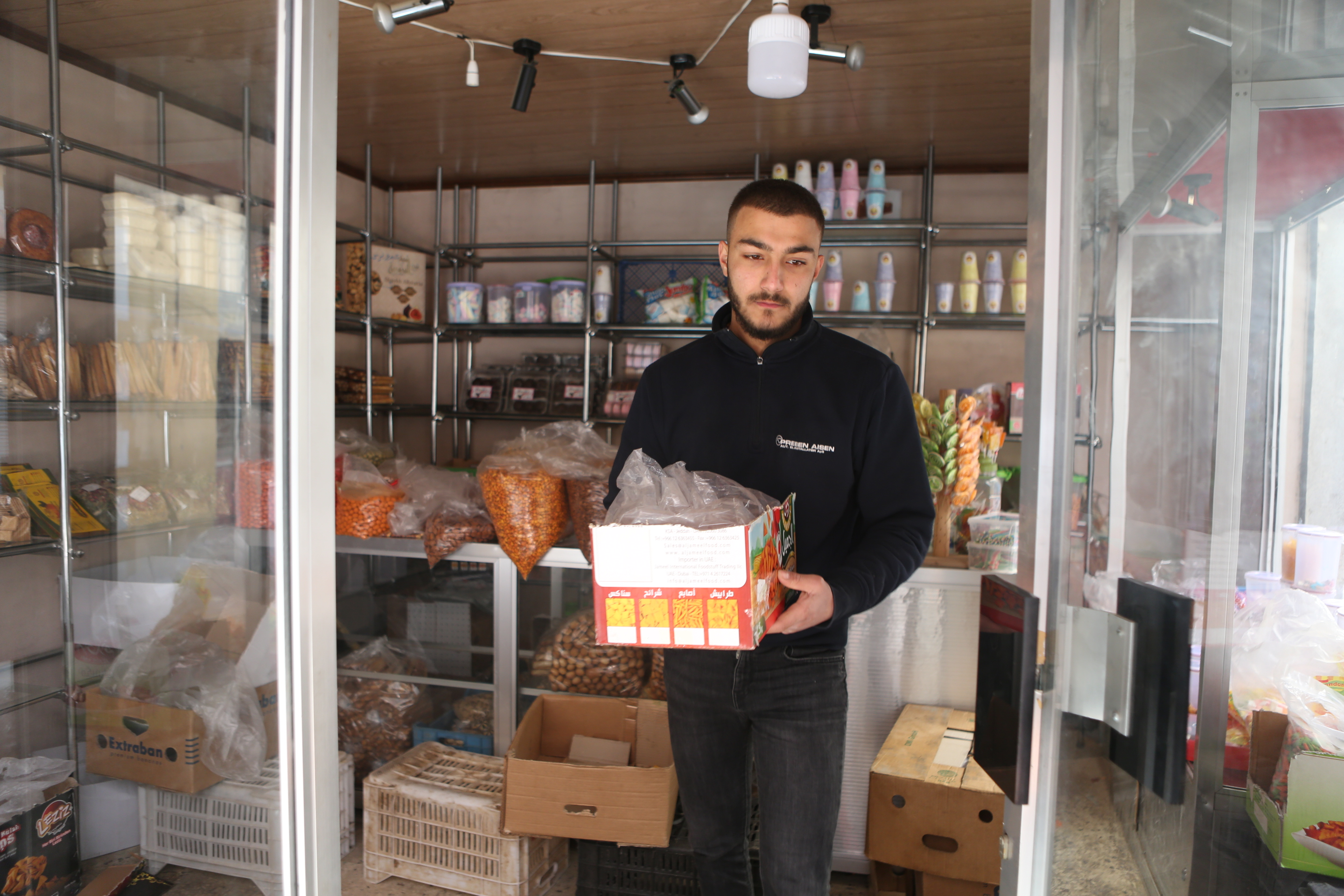
This candy shop will permanently close it in about 4 months, because the owner can’t afford to pay rent anymore. Before the crisis began, Hamza wanted to open his own street food van, cooking fast but affordable food like burgers and hotdogs, but couldn’t find the capital for it.
“There won’t be any candy shops in Baalback once this shop closes” says Hamza. He considers this an opportunity to open his own candy shop. “At least I can be the boss of myself for once” Hamza adds.
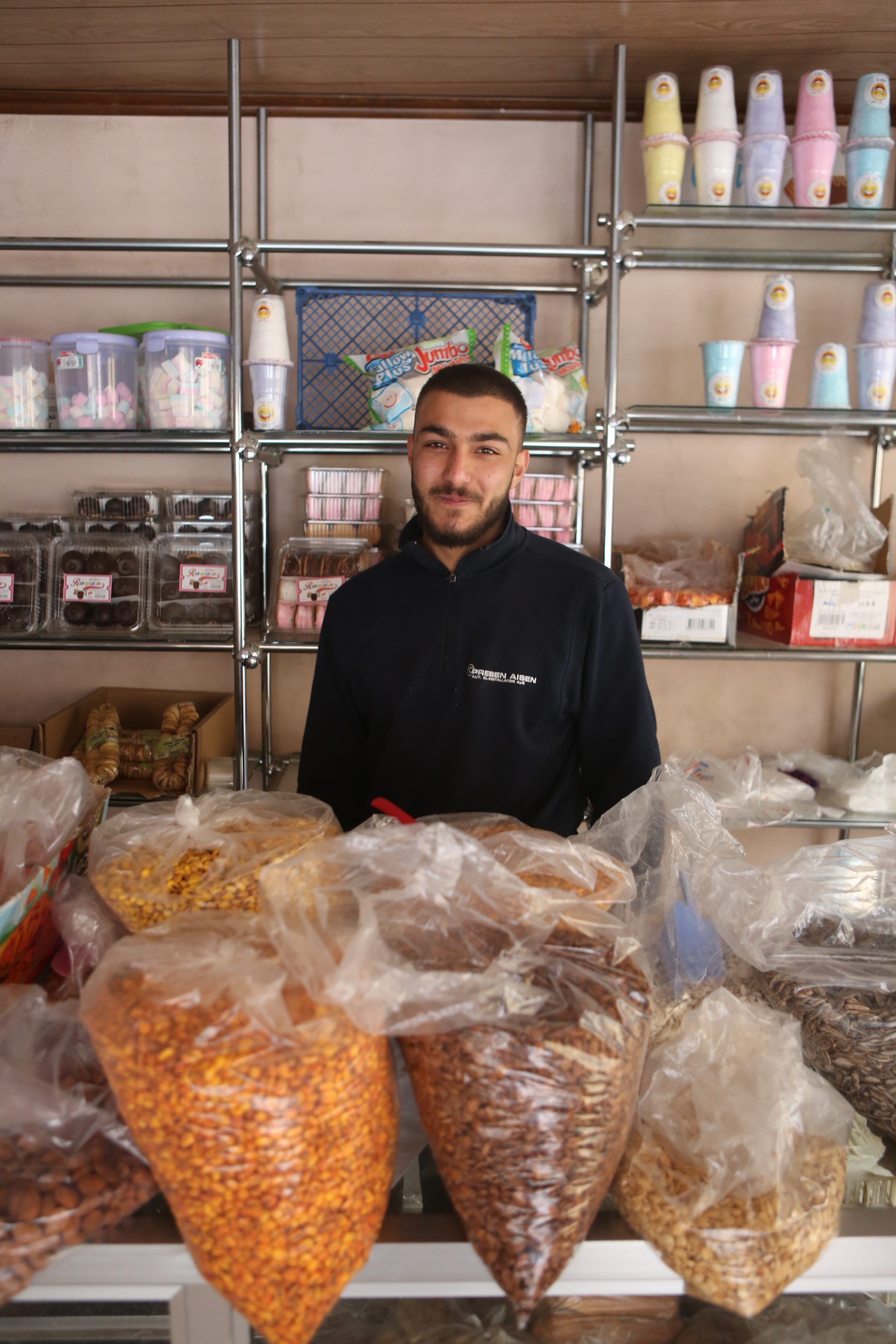
After work, Hamza calls his friends and they meet near the castle. They walk around the streets and go to a local café to talk and hang out, smoke and drink coffee. Before the crisis, hamza and his friends used to go by car to destinations like Beirut, or Zahle’, sometimes on a daily basis. They never worried about fuel prices, but now spend all their time in and around Baalback city. If they do decide to go on a trip to Beirut, it would cost him a whole months’ salary only on car fuel.
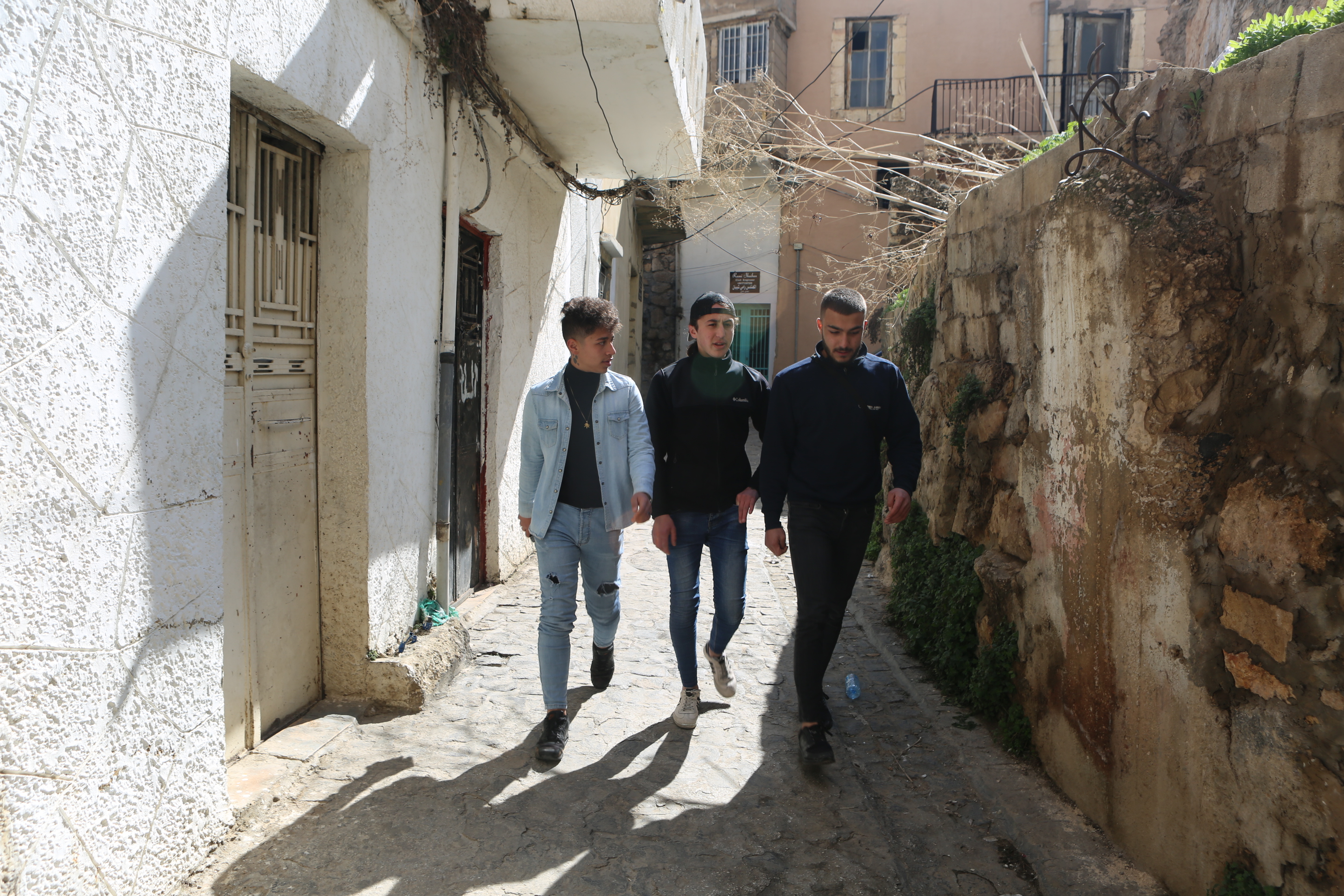
Hamza and his friends playing street football in a historic neighbourhood in old Baalback city.
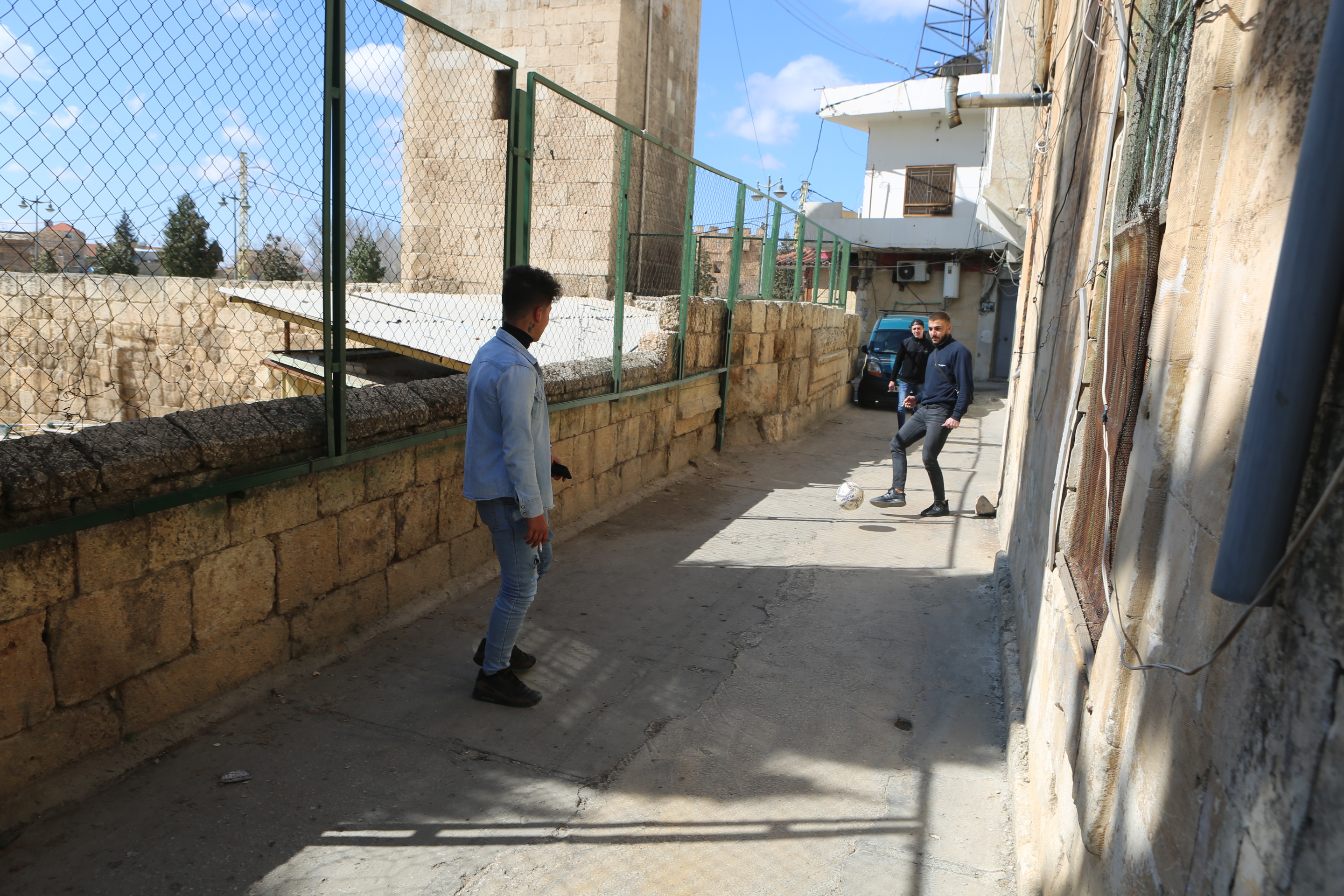
At 7pm, Hamza heads to the gym. He tries to keep his body in shape and trains on the boxing bag so he can be able to defend himself. Baalback has become dangerous after the crisis, a lot of robberies occur even in day time, this prevents Hamza from going to a lot of places, and unwillingly go back home at 10 pm.
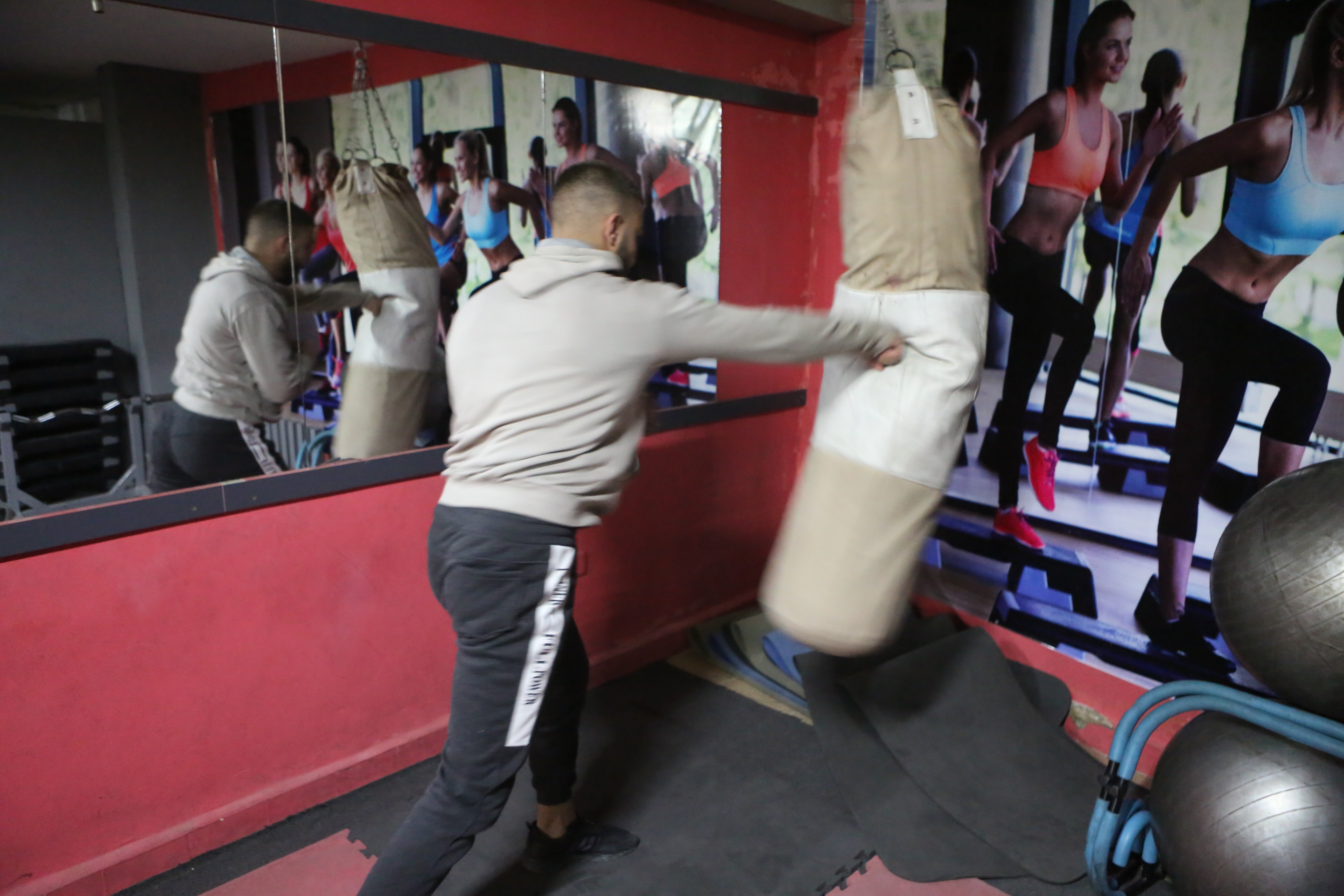
Hamza usually does small trades during the day to get by. He buys used items like motorcycles and antiques for a decent price, repairs them, gives them a fresh coat of paint, then resells them for a profit.
Today, Hamza goes to his aunt’s old house, where he found an antique “Singer” sewing machine. Hamza’s Aunt is very supportive to him, she is always helping him to find his way. Hamza says he is now trying to convince his aunt to loan him the capital needed to open the new candy shop in the market.
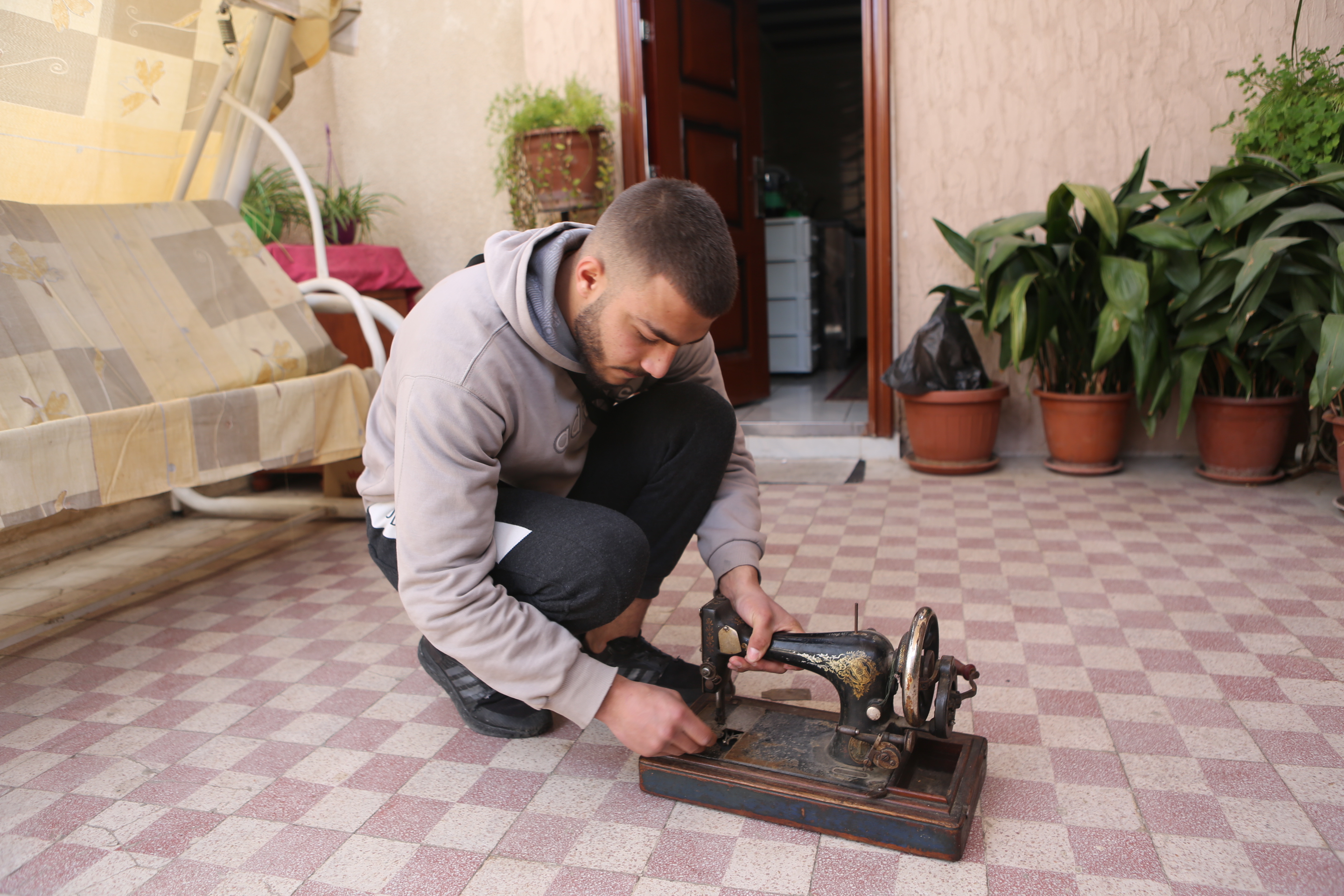
Hamza takes the Sewing machine to antique market near the castle, starts negotiating with the store owners for a good price. He was successful in selling it.
He learned to do this small trade about a year ago. He started doing it when he saw everyone around the city trying to sell anything that might have a value to make some pocket money.
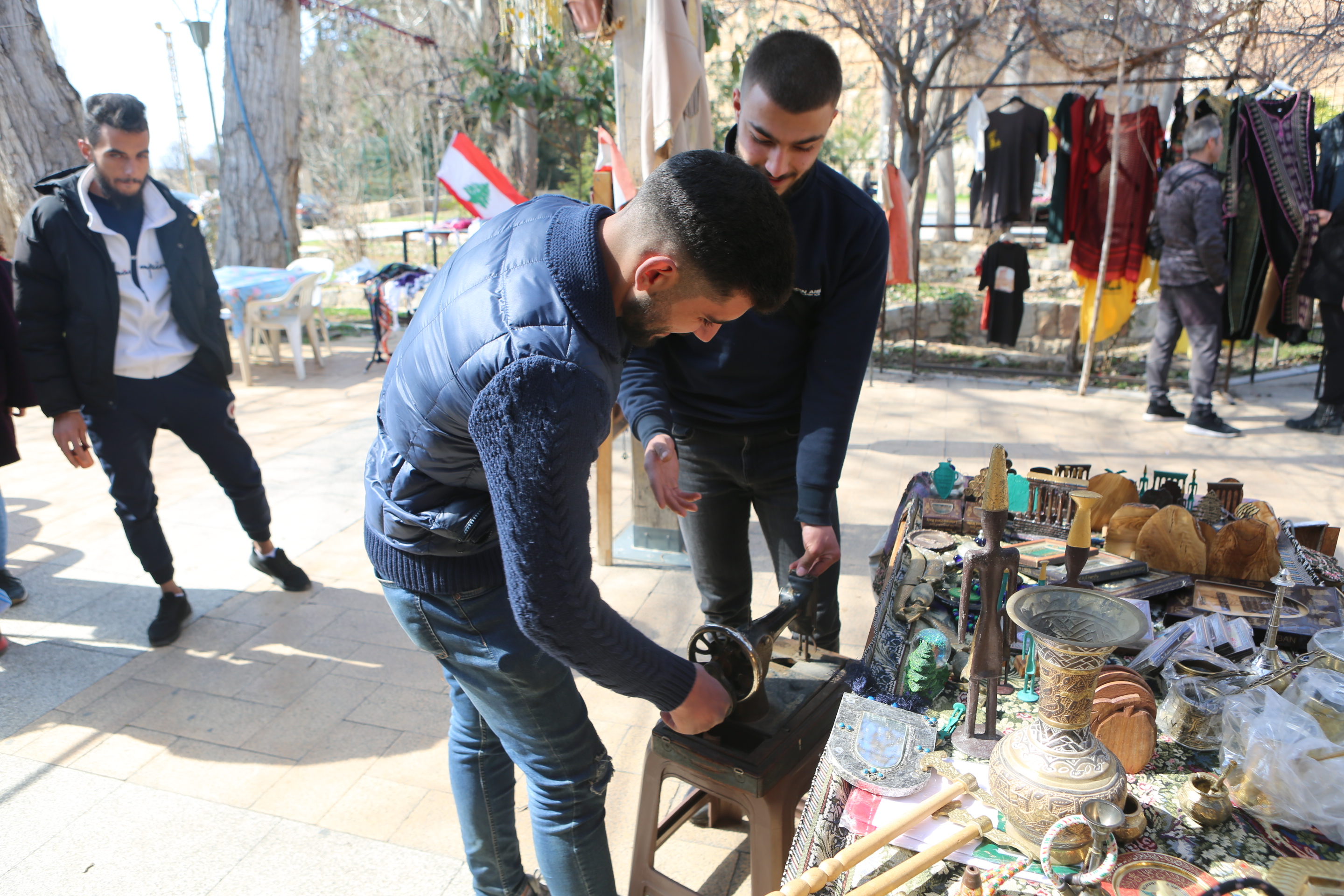
After cashing out, Hamza goes to the local arcade to play a game of billiards, before finally heading home.
